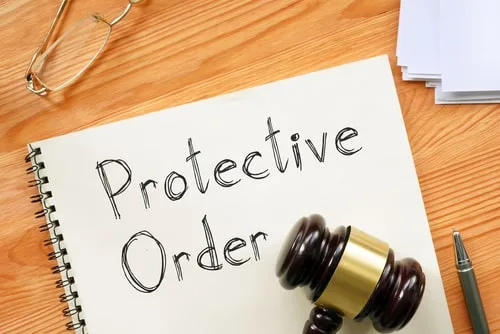Texas offers its citizens three main protective orders: temporary ex parte, final, and emergency protection. They vary from restraining orders because they are enforceable and provide more protection. A protective order is often used to protect individuals who have been or feel threatened by the possibility of domestic violence. A family law attorney can go over the protective order options for your particular case and petition for one to the court on your behalf.
What Does A Protective Order Do?
A protective order is one way the law can protect individuals from further harm. Though you may hear them often used interchangeably, they are different from restraining orders. Three other protection orders in Texas serve to help individuals gain legal protection for themselves and their family members from the act or threat of domestic violence.
Temporary Ex Parte Protective Order
This is a court-issued protective order to provide immediate protection from an alleged abuser. All family members living in the same household as the abuser are covered by this protection order. The abuser does not have to be present in the courtroom for the issuance of a temporary ex parte protective order. However, there must be clear and present evidence of the claims of domestic violence before a judge will issue one. The judge will use the information provided by the accuser to make a judgment on whether or not a protective order is necessary.
An ex parte order is typically valid for 20 days and can be extended for an additional 20 days if necessary at the accuser’s request. The short duration will often cover the period between when emergency protection is needed and when you receive a final protective order should a final protective order be required.
Final (Permanent) Protective Order
When a temporary order is insufficient, a final protective order is issued. The court can issue a final order in the case that domestic violence or the threat of domestic violence remains after the expiration date of a temporary order. The final order will last up to two years and can be extended if necessary. The accuser cannot receive a final order ex parte and will require that the alleged abuser be present at the court hearing. This affords the alleged abuser an opportunity to defend themself and dispute the claims made against them.
Order of Emergency Protection
Only the magistrate criminal court can issue an emergency protection order, whereas the other two orders are issued through civil court. The unique factor about an emergency protection order is that the one suffering domestic violence does not have to file for it. Instead, an arresting officer, guardian, or prosecutor can request one on the individual’s or household’s behalf. An order of emergency protection is only commonly ordered when an alleged abuser commits one of the following acts against a member of a household:
Contact a Fort Worth, TX Family Law Attorney
You should never have to face an abuser without a lawyer present. In cases of domestic violence, it is essential to have a skilled Dallas, TX protective orders lawyer on your side. The Clark Law Group can offer advice, file protection orders on your behalf, and represent you at your trial hearing. Do not wait for matters to get worse. Contact our office at 469-765-3910 to set up an appointment as soon as possible.


